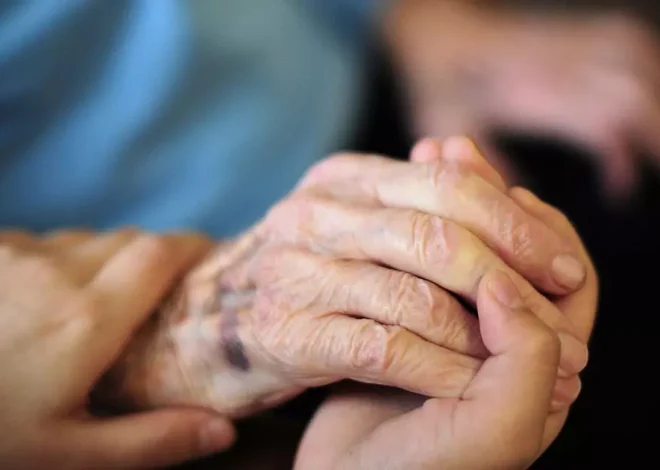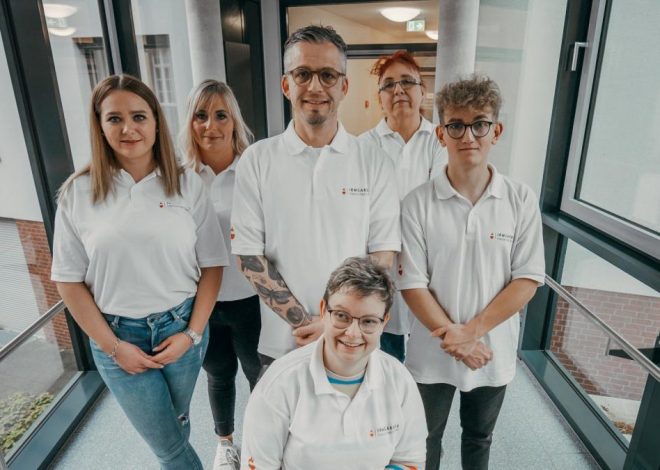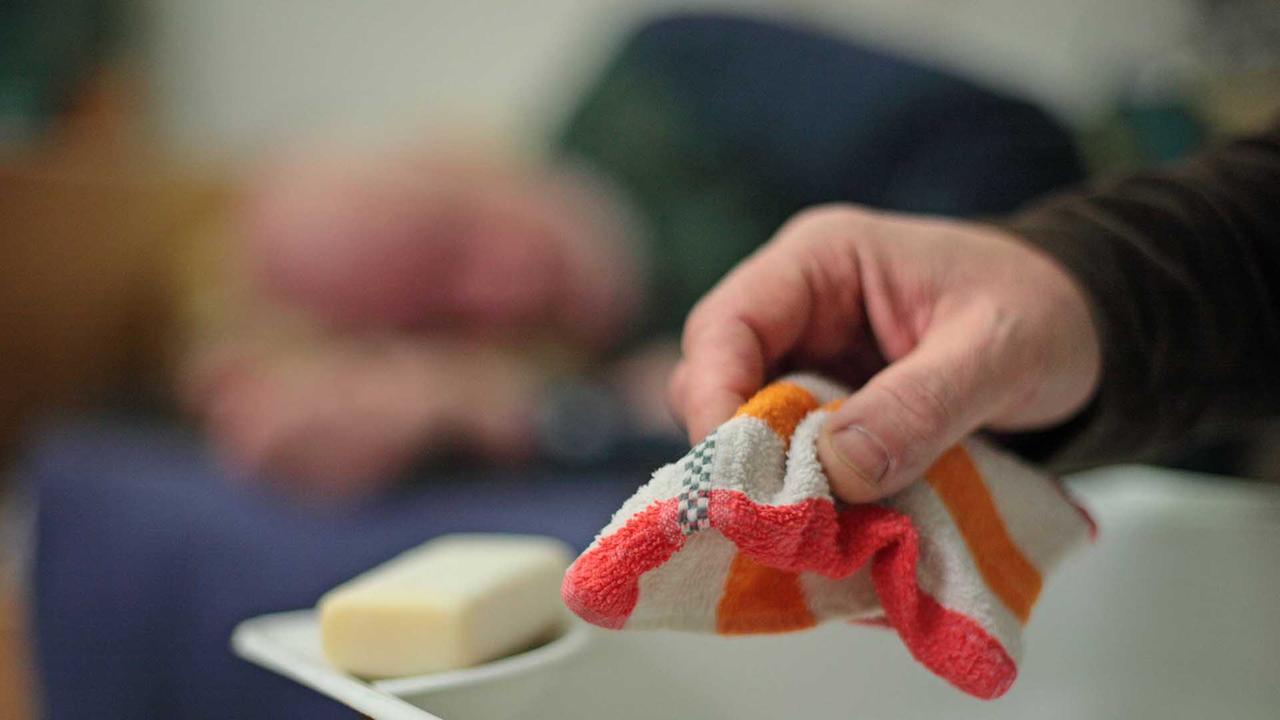
Brandenburg Berlin: Many caring relatives face existential worries and poverty
Being in need of care is not only stressful for those affected, but also for the people who look after them. One in five family carers is at risk of poverty, and one in four women caring for their children is at risk. Politicians are called upon to act. By Christina Fee Moebus
Kathrin Krenz used to enjoy travelling or meeting up with friends. Nowadays, the 49-year-old hardly has any time for this in her daily routine between care and work. She and her partner have been looking after their son Max for around four years. He is autistic and has been diagnosed with a mental disability. At twelve years old, Max is at the mental development level of a toddler. The boy still needs diapers. He also cannot play outside alone like other children his age.
“It’s a double burden that never ends,” says the special education teacher from Bad Belzig in Brandenburg. It’s exhausting.
Kathrin Krenz tries to manage the difficult balancing act between her job and her daily care routine as best she can. She works part-time and commutes to Berlin several times a week for her work at a school. A life on the edge of endurance – also financially. Her son has been classified as care level four. He is therefore entitled to around 750 euros a month. “That is disproportionate to the work you have,” says Krenz.

“I still love him. But that has nothing to do with him being my partner anymore”
Anne Bendlin’s husband suffers from dementia and now lives in a care facility in Berlin. In this interview, she explains why she has approached the disease with “radical acceptance” and what she wants from politics.more
Bureaucratic effort for Assistance is high
There are various additional services that she or her son are entitled to. For example, for leisure or school assistance, for nursing aids or day and night care. However, this assistance often has to be applied for separately. Filling out applications, getting information, going to authorities – this is usually not affordable in addition to work and everyday care, says Krenz.
Many caring relatives feel the same way. Around 85 percent of all people in Berlin and 87 percent of all people in Brandenburg in need of care were cared for at home in 2021. There are many different care constellations – for example by relatives with and without the support of outpatient care services, nursing homes and the like. Almost 190,000 people in Berlin and Brandenburg were cared for by their relatives alone.
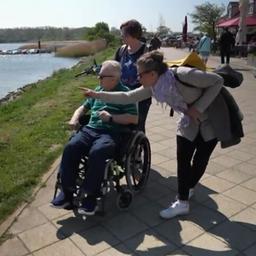
How vacation works for those in need of care
More than four million people in Germany who require care are looked after at home, often by relatives or friends. The helpers sometimes desperately need some relaxation. Hannah Demtröder explains how care leave can be successful. more
In the majority of cases, it is women who look after those in need. But there are also sons and grandchildren who look after their grandparents and – as in the case of Kathrin Krenz – parents who look after their children together. Relatives often put their own paid work aside to provide care at home. This comes at the expense of income and, in some cases, pension entitlements – a huge emotional and financial challenge.
Petra Kather-Skibbe advises relatives on how to combine work and care at the Berlin-based Kobra association. The majority of people who come to her are women between the ages of 40 and 60.
Many caregivers are overwhelmed, but only seek support when they reach their limits, she says.
Combining care and work – Kathrin Krenz
A separate care allowance for relatives
Some of the people Kather-Skibbe advises pay high amounts of their own money for care, she says. Sometimes it can easily be 2,000 euros a month. For example, if an outpatient care service comes several times a day to support a physically disabled person with a medium level of care at home.
However, every care situation is individually different.
The financial burden has increased despite increased benefits from nursing care insurance. This is the result of a representative Forsa survey commissioned by the AOK scientific institute. While the average personal contribution was just under 200 euros per month in 2019, it has now risen to 290 euros per month.
Petra Kather-Skibbe from Kobra recommends that caring relatives contact care centers to find out more about the help and possible benefits available. She also calls for relatives to be entitled to their own care allowance in order to cushion the loss of earnings when loved ones are being cared for at home. In the aforementioned Forsa study, respondents stated that they spend around 49 hours a week on caregiving activities – for example, feeding, administering medication, and cleaning the body. That’s more than a full-time job in addition to their actual paid work.
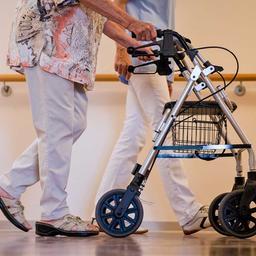
One in four nursing home residents receives social assistance
more
Negotiation on planned care reform
The BKK, the umbrella organization of company health insurance companies, is also calling for tax-financed financial support for family caregivers. In addition, the financial aid that is currently available needs to be better bundled in order to get the benefits jungle under control, says Anne-Kathrin Klemm, board member of the BKK.
“For example, in a certain situation, a relief package is needed, and there is a budget for this and the person in need of care and the family member then decide for themselves what they need and require from this package.”
The traffic light coalition is currently negotiating the planned care reform. SPD Health Minister Karl Lauterbach recently signaled that he too wants to work for further improvements in home care. However, the financing remains questionable. The FDP wants to stick to the debt brake. The costs of care are rising in general and the number of people who need support is increasing. The company health insurance funds are warning of a financial hole in care insurance: a deficit of 4.4 billion is forecast for 2025.
Kathrin Krenz continues to pay a lot of the costs for her son, who needs care, from her own savings. She often feels at her limit, she says. She is thinking about putting her son Max in a residential care group. So that she can work more again, but also to have “time to breathe” now and again. A short-term solution for people like Kathrin Krenz and her family is not in sight politically.
Broadcast: rbb24 Inforadio, 27.05.2024, 06:45 a.m.

Ethel Purdy – Medical Blogger & Pharmacist
Bridging the world of wellness and science, Ethel Purdy is a professional voice in healthcare with a passion for sharing knowledge. At 36, she stands at the confluence of medical expertise and the written word, holding a pharmacy degree acquired under the rigorous education systems of Germany and Estonia.
Her pursuit of medicine was fueled by a desire to understand the intricacies of human health and to contribute to the community’s understanding of it. Transitioning seamlessly into the realm of blogging, Ethel has found a platform to demystify complex medical concepts for the everyday reader.
Ethel’s commitment to the world of medicine extends beyond her professional life into a personal commitment to health and wellness. Her hobbies reflect this dedication, often involving research on the latest medical advances, participating in wellness communities, and exploring the vast and varied dimensions of health.
Join Ethel as she distills her pharmaceutical knowledge into accessible wisdom, fostering an environment where science meets lifestyle and everyone is invited to learn. Whether you’re looking for insights into the latest health trends or trustworthy medical advice, Ethel’s blog is your gateway to the nexus of healthcare and daily living.

